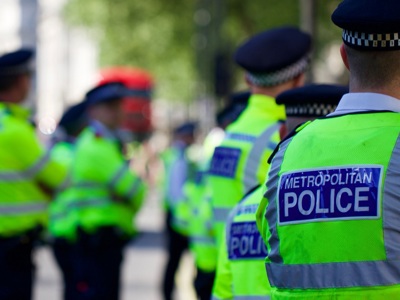Inquest into the death of Jordan Clare, 22
Coroner Adrian Farrow found that the delay by the police in re-grading an incident to an emergency response, on being notified of 22-year-old Jordan Clare's intent to take his own life, possibly contributed to his death.
Posted on 14 October 2022
The inquest into the death of Jordan, of Stockport, began on 06 October 2022 at Manchester South’s Coroner’s Court and concluded on Friday, 14 October 2022.
The inquest heard that Jordan, pictured, was diagnosed at a young age with ADHD, as well as a variety of complex co-momorbid conditions, such as ODD and Conduct Disorder. He also suffered from learning difficulites and mental health issues. Jordan was referred to Children’s Services whilst a teenager, as his family progressively struggled with the challenges of his conditions. On becoming an adult, he continued to receive support from the Leaving Care Team, as well as from a number of other agencies.

Jordan’s family believe that he did not receive the consistent support he required for his difficulties. This pattern persisted, they believe, in the months leading up to his death.
A restraining order was in place in respect of Jordan’s parents, who, following his release from prison, sought to have it changed so that Jordan and his father could go fishing together to try to rebuild their relationship. The restraining order caused Jordan frustration and his family tried to let him know that they loved and supported him. It was recognised at the inquest, in the evidence of the Head of Adult Safeguarding, that the restraining order was not the most appropriate approach, given Jordan’s young age, and that restorative interventions should have been explored with him instead.
Following Jordan’s release from prison in May 2020, the inquest heard that he was making very positive progress in the community. He was engaging well with the different agencies involved in his care, and was abstaining from hard drugs. In late June 2020, however, Jordan started to raise with these agencies issues he was having with a neighbour in his supported tenanacy. This became an increasing source of anxiety and distress for him in the following months as he felt that the issue was not being addressed.
On 26 August, 2020 Jordan contacted Greater Manchester Police three times in short succession. In the first call, at 10.40am, he spoke of the issues he was having with his neighbour and of his mounting frustration that he felt nothing was being done. His call was categorised as a Grade 4, the lowest level for a police in-person response.
During the second call with the police, at 10.57am, Jordan made threats to take his own life. He was noted to be, at the start of this call, extremely agitated. The police call handler contacted Jordan’s housing support officer, and relayed his comment to her. The housing support officer responded “he won’t do, he’s just having a bad day”. The level of police response was not referred for regrade at this stage, remaining at Grade 4. Nor was the police call log updated to reflect the comment made by Jordan, or the call-handler’s risk assessment. The coroner considered that this omission reduced the body of information available to those later involved in the incident response.
During the early afternoon of 26 August 2020, Jordan sent a string of text messages to his housing support officer indicating his intention to take his own life. On reading these messages, she contacted the Greater Manchester Police to report that Jordan had said he was on the way to take his own life. This call was made at 12.44pm.
The police call handler notified the radio operator of the call, but did not request a regrade of the incident. This was only initiated by the radio operator at 12.55pm. There was a subsequent delay in the re-grading decision, with the incident not designated as a Grade 1 emergency response until 1.06pm. The coroner found that there were missed opportunities for the response re-grade to be requested more speedily and by other routes. He found that overall this delay in re-grading the incident to an emergency response, following the 12:44 call, possibly contributed to Jordan’s death.
Police officers arrived at Jordan’s property at approximately 1.12pm, where Jordan was found critically injured. He was taken to hospital but died two days later.
Jordan’s family said following the conclusion:
“Jordan had struggled since he was a child with ADHD and ODD. Eventually he turned to drugs to help deal with his intense difficulties. But while he was in prison he was able to stop using the drugs and we really felt he had turned a corner and had hope for the future.
“We were so proud of him for coming off the drugs, and he said he wanted to sort his life out so that he could make us proud.
“Jordan desperately needed support, but we feel it just wasn’t there for him. On 26 August he was crying out for help. We wish people had listened. We think if Jordan had got the help he needed, he would still be here today.
“We are glad that the coroner has heard what happened with Jordan and that the issues that caused him such pain have been made clear.”
The family were represented by Leigh Day solicitor Yvonne Kestler who said:
“The circumstances of Jordan’s death have been fully investigated during this inquest and the actions of those who had contact with Jordan on the 26 August, from various different state agencies, scrutinised.
“We are grateful to the coroner for his thorough and careful consideration of the events leading up to Jordan’s death and his conclusion that the delays in the police emergency response were possibly causative of his death”.
Inquest senior caseworker Selen Cavcav said:
“We are contacted by numerous bereaved families every year following a death of a young person where the risk of self-harm of suicide was not properly assessed or responded by the police. The failures are systemic and apply to police forces nationally. These strong findings in Jordan’s inquest should be acted upon urgently to ensure proper changes on the ground. What could be more concerning than a preventable death of a young person?”
The family were also represented by Laura Profumo of Doughty Street Chambers.




